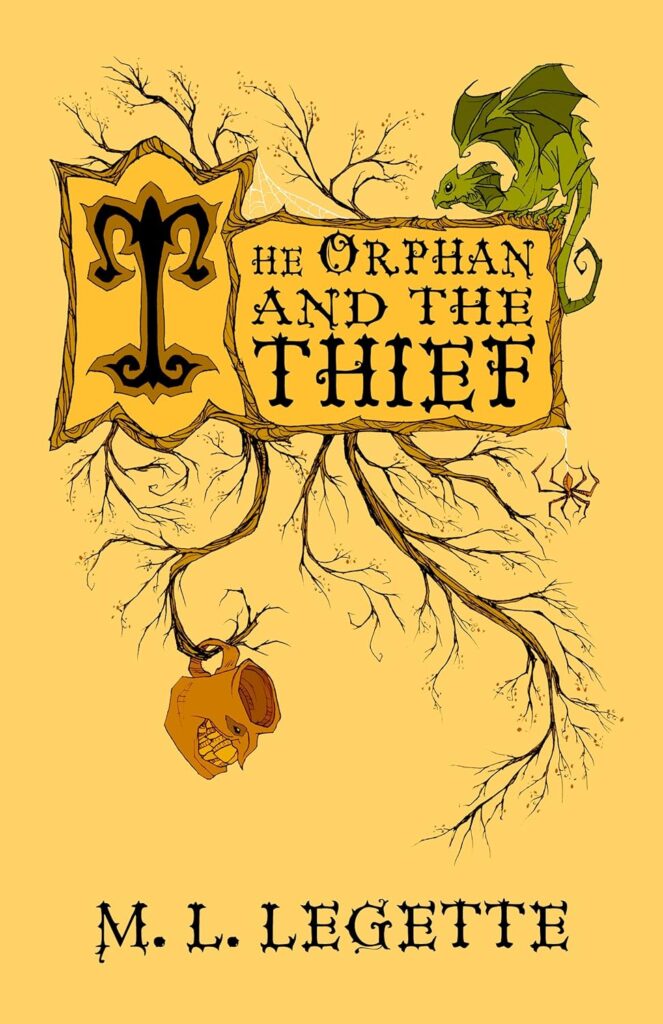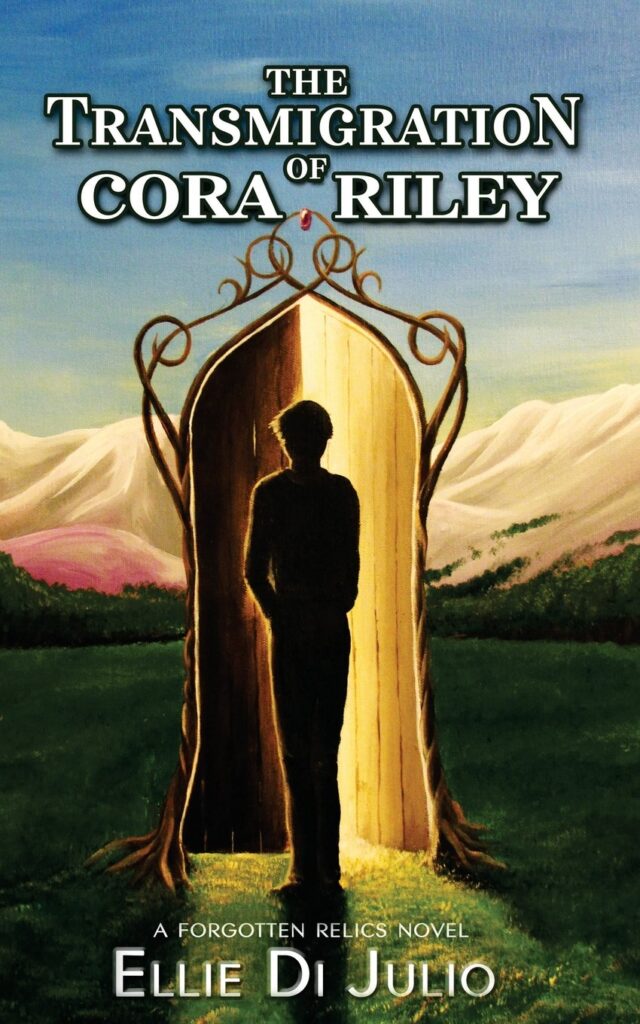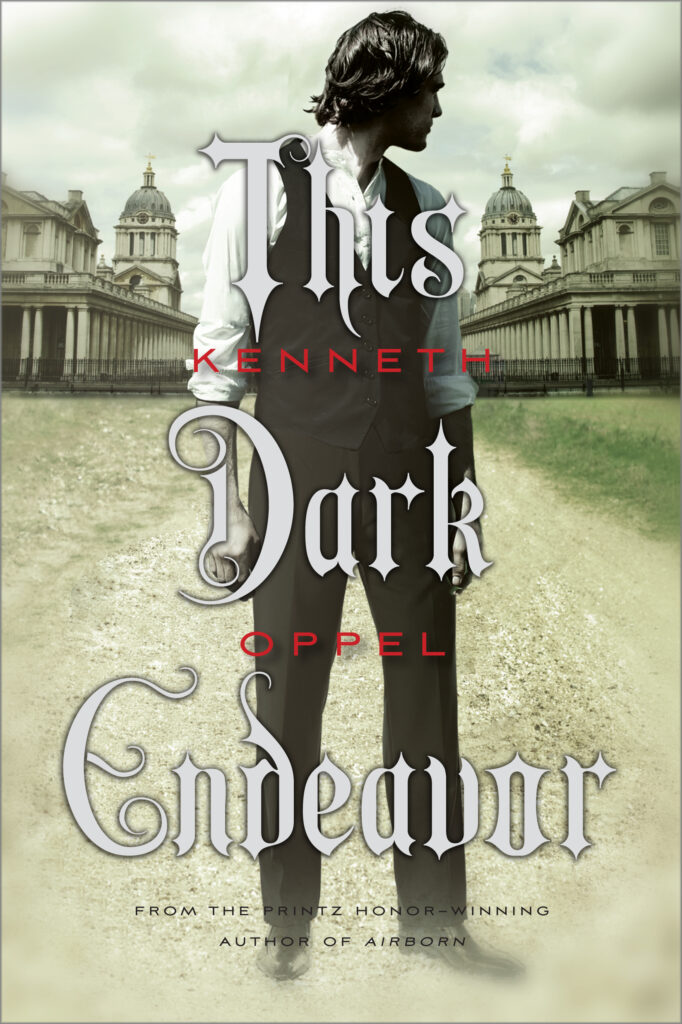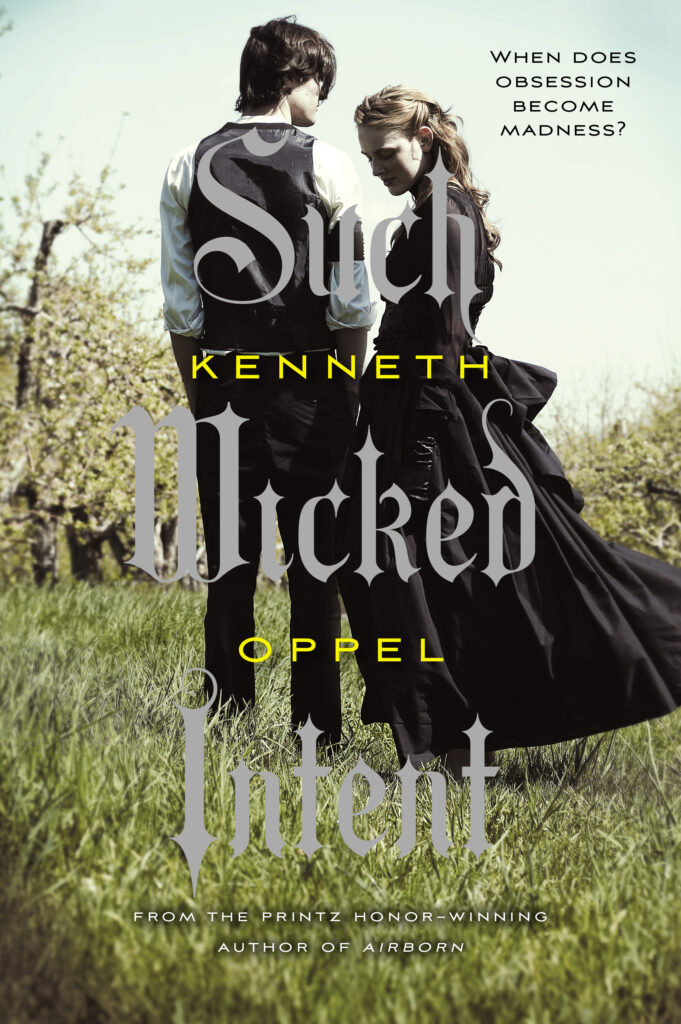Category: Spotlights
Movie Spotlights
Book Spotlights

- Spotlighting the Books of Speculative Fiction -

Book Spotlight: Spirits (Sparks Saga, Book Two) by R.S. McCoy

Book Spotlight: Horns by Joe Hill
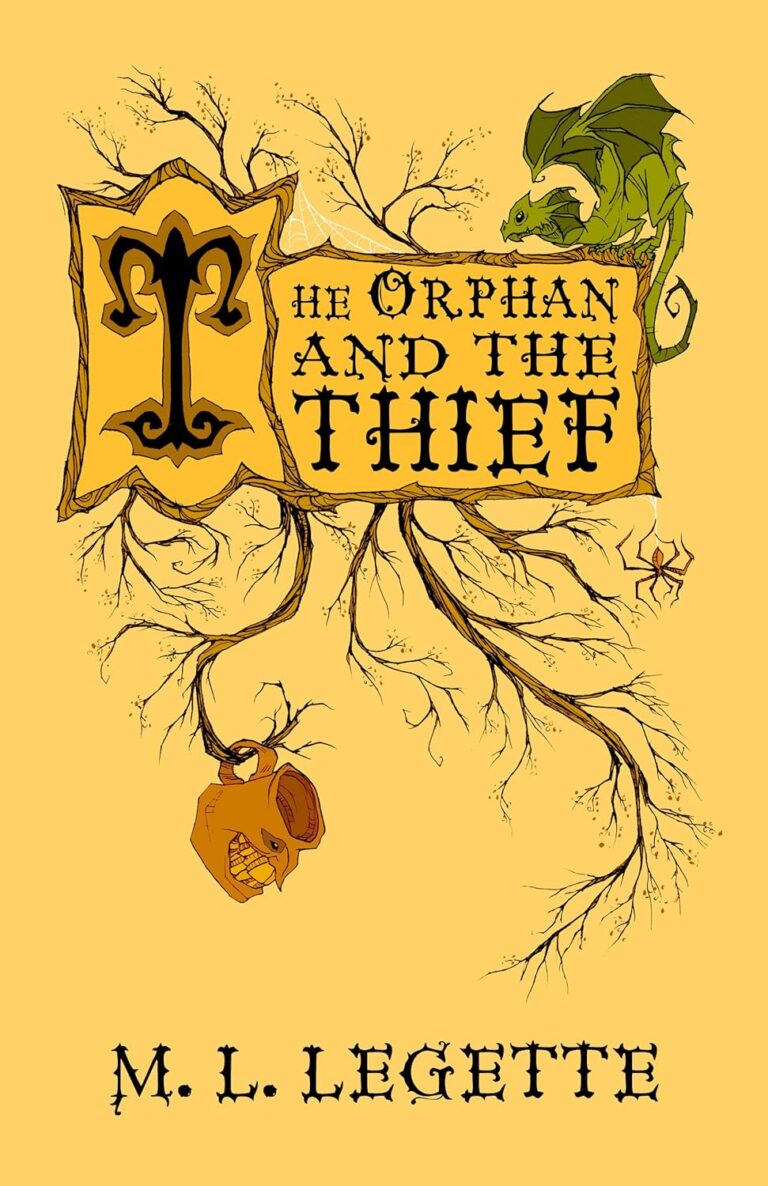
Book Spotlight: The Orphan & the Thief by M.L. LeGette
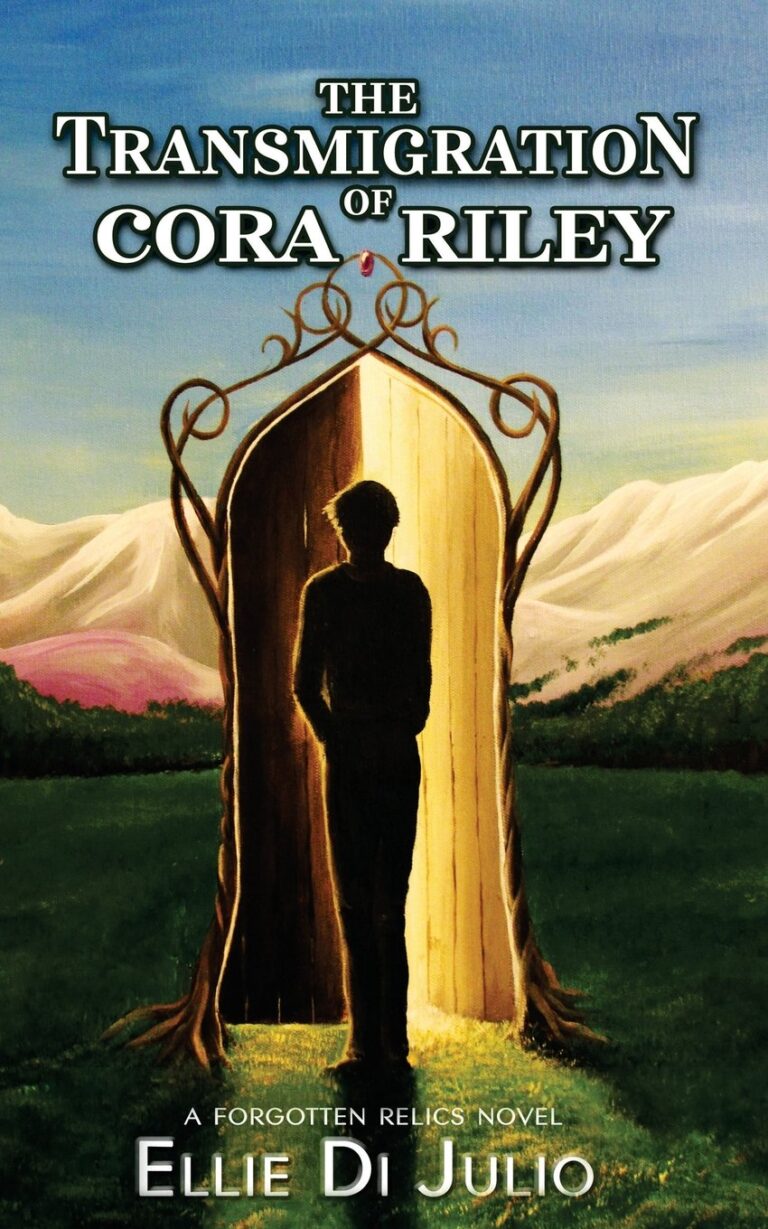
Book Spotlight: The Transmigration of Cora Riley (A Forgotten Relics Novel, Book One) by Ellie Di Julio
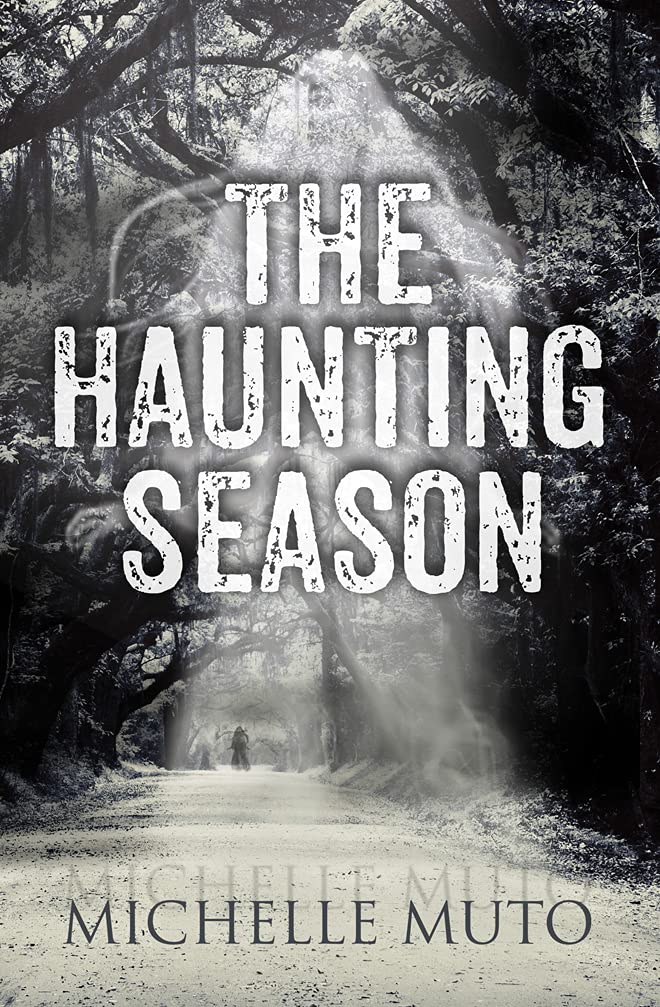
Book Spotlight: The Haunting Season by Michelle Muto

Book Spotlight: The Apprenticeship of Victor Frankenstein Series by Kenneth Oppel

Book Spotlight: Enemy Mine by Barry Longyear & David Gerrold

Book Spotlight: The Alchemyst (Secrets of the Immortal Nicholas Flamel, Book 1) by Michael Scott

Book Spotlight: Bitterblue (The Seven Kingdoms Trilogy, Book 3) by Kristin Cashore
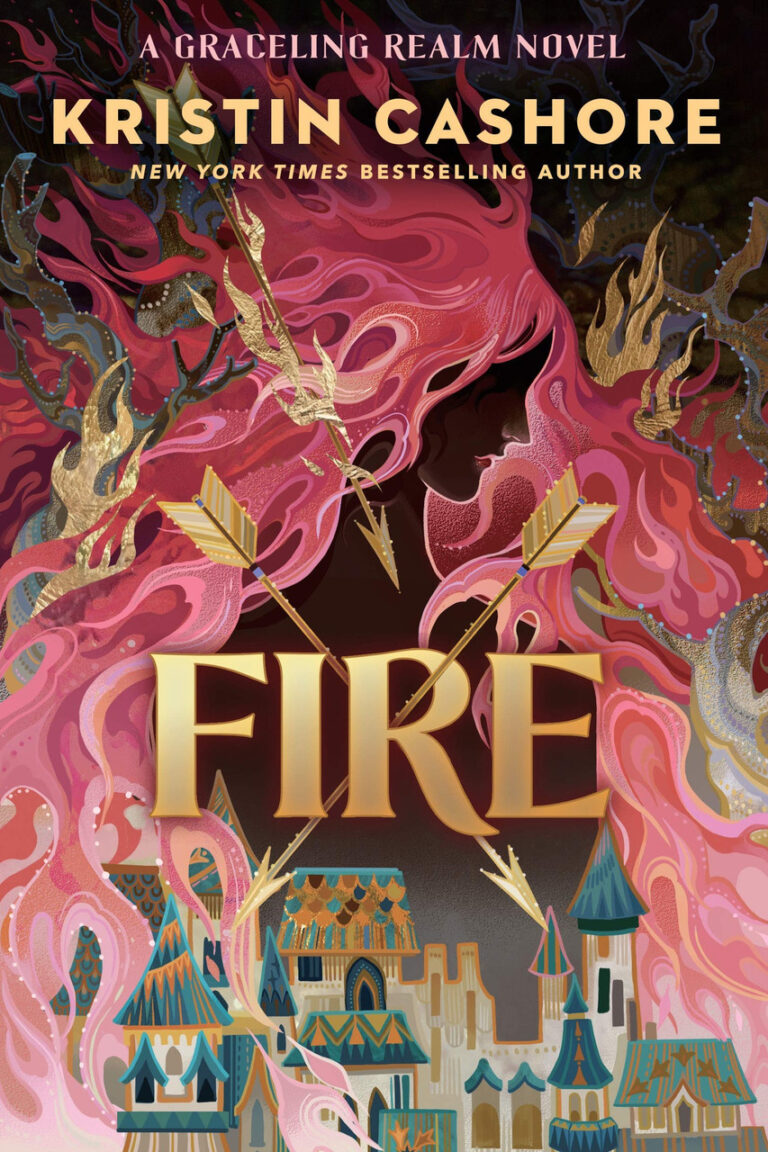
Book Spotlight: Fire (The Seven Kingdoms Trilogy, Book 2) by Kristin Cashore

Book Spotlight: Graceling (The Seven Kingdoms Trilogy, Book 1) by Kristin Cashore

Book Spotlight: Saving Mars (Saving Mars, Book 1) by Cidney Swanson

Book Spotlight: Wild Cards I, Expanded Edition by George R. R. Martin (et al)

Book Spotlight: Eyes to See (Jeremiah Hunt Chronicles, Book One) by Joseph Nassise

Book Spotlight: The Curse Workers Trilogy by Holly Black

Book Spotlight: The Last Unicorn (The Graphic Novel) by Peter S. Beagle

Book Spotlight: Grave Mercy by Robin LaFevers

Book Spotlight: The Ripple Trilogy by Cidney Swanson

Book Spotlight: The Monstrumologist Series by Rick Yancey
Author Spotlights
Book Spotlight: Spirits (Sparks Saga, Book Two) by R.S. McCoy

Book Spotlight: Spirits (Sparks Saga, Book Two) by R.S. McCoy
Bonjour, Beardies!
It has been far too long, so please forgive my absence…
Today, however, I have a special treat, and it’s not just my return from the depths of non-existence.
A while back, I spotlighted the first book of The Sparks Saga, an exciting new series by RS McCoy. The book, also titled Sparks, was phenomenal. After reading the 5-star book, I was so happy that RS McCoy stumbled upon the blog and requested a review. There was one hiccup, however. Although a top-rated book for me, the editing was lacking. Luckily, RS McCoy agreed to my pleading that I edit it for her. I couldn’t let such a great story suffer the stigma of a bad editor.
With that said, I also edited Spirits, the subject of this Spotlight. Let it be known, however, that I show no bias to either book given my involvement—my involvement was a direct response to my absolute love with this series and not the other way around, and I can’t wait to give you all the juicy details. And by details, I mean Gems—not spoilers.
{—PREMISE—}
LARK DAVIES sleeps in a gilded palace and eats the finest foods, but he would trade it all to change that one night. Unable to use his talent for mind-reading to prevent a series of murders, Lark’s dreams are ravaged by gruesome memories. Robbed of sleep and slowly losing his sanity, the devoted lover and expectant father can only watch as his life continues to spiral out of control.
Whispers of invasion threaten what little peace their new life might have offered. Khea, the new queen of Nakbe–and his only light in the night–declares human sacrifice to be a necessary component of the island culture, forcing Lark to assert his disapproval. For the first time, the unifying bond he shares with her isn’t enough to keep them together.
With his mentor at his side, Lark’s only hope to stand against the queen and avert a future of death lies in his unexplored ability to manipulate physical elements of the world. The two men search out the spirits that control water, fire, and wind in hopes of ending two thousand years of violent traditions before rival nations invade.
{—GEMS FOR WRITERS—}
1. World Building...
PERHAPS you are thinking I always choose this Gem. In part, you’d be correct. But only if the book warrants it. World building is my passion–if you cannot build a believable and enticing world, most likely you cannot fully conceive the story you are writing. It’s often said that writers are often off in their own little worlds, and there’s a reason for that: they are. Most great writers submerge themselves into the worlds they are putting to page.
MCCOY has not only created a wonderful world in her series, but the individual regions that make up the world as a whole are worlds within themselves. Each has its own culture, its own history, and its own struggles, all of which McCoy describes beautifully. She truly delves deeper into the Nakben culture in writing Spirits, and we as readers feel as much a part of the world as Lark, Khea, and Avis.
2. Magical systems...
IN the first book of the series, Sparks, we learn that individuals carry a spark, a light which makes them special and allows them to manipulate elements or creatures or something less tangible (such as thoughts). In Spirits, McCoy explores the reason behind the sparks and truly incorporates lore and legend within her magical system to account for the transcendence of the magical abilities. We learn more about the gods and goddesses of the world and their role within the system. This makes the magic not only seem believable, but also possible.
3. Characterization...
THIS might sound cliché, but McCoy‘s characters truly leap from the page–most into your heart. As a reader, you connect with the characters on a level that you do in everyday life–at least I did. From the amorphous green fog to the unlikeliest of friends found deep in the Silver Springs, each has a distinct personality you grow to love–or, in some cases, hate. The human condition and its complete range of emotions are not lost with McCoy She incorporates almost the entirety of its span, and believably so.
4. ALTERNATIVE LIFESTYLES...
WHILE editing Sparks, I commended McCoy for incorporating same-sex love within her Nakben nation, but I did not mention it in my spotlight of the title.
Her continued mention of this in Spirits—and her obvious support of the existence of love in its many forms—cannot be ignored any longer. I must outwardly and openly commend her for it. Literature is often at the forefront of cultural norms, so hopefully her expression of same-sex love as something normal–even mundane–will open the eyes, hearts, and minds of other readers, too.
{—RATING—}
{—CONCLUSION—}
IF you haven’t yet picked up the first book of this wonderful series, do so now! It’s not only about magic, it’s about life, love, loss, and looking at the world through another’s eyes. It’s about learning about the magic and power within yourself. It’s about friendship and connection to the world around us in a way which we as humans have lost.
I can’t wait for the third installment of this series, and I’m gloating in the fact that, as its editor, I get to see it before any of you. 😉
Until next time—Happy Scribing!
Joshua A. Mercier
Book Spotlight: Horns by Joe Hill

Book Spotlight: Horns by Joe Hill
NOSWAITH DDA, Beardies!
The BBC would like to apologize for the next announcement.
‘Tis I, Jessica, here with my first ever review on The Bearded Scribe, and I’m truly excited about it. I decided to start with one of my favorite stories because it’s very easy for me to discuss. I picked up this book because I love Stephen King and, being bored and carrying around 50 cents, saw his son’s book Horns at a Helping Hands store. It was about a week or so before I even opened this book. Frankly, it scared me. I don’t like reading about anything dealing with the Devil except The Bible. Even then, I get shaky and uncomfortable. I started reading on a night my daughter—not even two at the time—was running a high fever and needed constant rocking. I was so exhausted, and my brain was fried, so I grabbed the first book I could reach and started reading. Well, I couldn’t stop. She fell asleep around three in the morning but I couldn’t stop. I rocked her all that early morning and most of the next day just reading with my mouth gaping at this beautiful, heartbreaking novel. I cried just as hard as my daughter had been by the time we finished up Joe Hill‘s Horns. Right now, as it happens, I’m up with my five year old who is sick. She’s playing Final Fantasy V with her dad and watching me write.
{—PREMISE—}
IGNATIUS MARTIN PERRISH, that guy you see around town with the bad past everyone avoids, passes through the streets followed by not-so-silent whispered names. Murderer. Drunk. Waste. They all stare at “[t]hat piece of trash who killed his girlfriend and got away with it.” Iggy swears his innocence, but they know better. His brother is in show business, notorious for scums and charlatans. After all, weren’t they fighting when she left the bar?
Now, Iggy slinks past their eyes with a new sort of dread. He’s woken up to find a pair of horns growing from his temples. Also, people are confessing all their hidden dark secrets to him. People he doesn’t know, people who once looked at him with disgust, even his own parents and brother. Not only are they coming to him for confession, they’re seeking his permission to do these dirty deeds. Will Iggy give in to his newly-inherited powers of the Devil and show them a way to loose their evil, or will Iggy sacrifice his own soul to give them rest? If you knew the worst in people could you forgive them?
{—GEMS FOR WRITERS—}
1. Conflict...
IGGY PERRISH lives in a town where everyone around him accuses his girlfriend. He is a good-hearted guy, always trying to do the right thing, and his world has absolutely been destroyed. He battles alcoholism, depression, and a feeling of being isolated.
The night of Merrin’s murder, she announces she is leaving him. They have a terrible public fight and he’s last seen leaving the bar drunk and angry after her. Merrin’s conflict with Iggy isn’t as it seems. She’s actually been diagnosed with aggressive breast cancer; rather than have Iggy stay and watch her die, she wants him to go to college in London for a year. Her inner struggle is revealed in an all-Morse-code letter Iggy finds years after her death.
As if things for Iggy couldn’t get worse, his old best friend, Lee Tourneau, seems oddly immune to Iggy’s new powers of the Devil. If Iggy has the Devil’s power how is it Lee is unaffected? Their fight is not between good and evil but an evil which desires evil powers and an evil which desires forgiveness.
Iggy is also in conflict with himself. He’s grown horns out of his temples and can either lead people down to darkness or help them right their wrongs.
2. Evolution of a Character...
THE very first thing we see of Iggy is him barfing, drunk, and cursing his life. He’s drowning in depression at the loss of his only love, Merrin. He’s been accused of killing her and it has absolutely shattered his entire existence. Iggy, in retrospect, is a kind, smart, gentle guy. This is nothing like the Iggy we see today. His live-in girlfriend makes him miserable and he does everything he can to make her just as miserable. Iggy is a broken man.
With the addition of his horns, Iggy is able to see the evil inside the people around him. When his brother confesses to knowing who killed Merrin, Iggy is sent on a tailspin. He not only finds out Merrin was sick, but also she didn’t break up with him as he believed. Iggy’s brother announced he was there when Merrin was killed. He knows who did it and all the torture she suffered. He’s been carrying it for years and was only able to unload his mind with Iggy’s horns. Iggy is slowly consumed with his pain and rage. He sets a trap for the killer of his love, only to have it foiled by his brother’s coming to his aid. It’s either let him live or sacrifice his life.
Iggy goes from a slobbering drunk to a noble, utterly inspiration for how all should be. We should confront our evil impulses. Why do they exist within us all? I know for myself it’s difficult to face these thoughts sometimes. I end up asking myself, “Why on Earth did I just think THAT?” I’ve caught myself in deeds where I feel like I’m on the outside watching it happen, totally confused and screaming at myself to stop. This is exactly what Iggy must do in order to put Merrin’s spirit at rest. He must confront that primal beast within and let him loose or tame him.
{—RATING—}
{—CONCLUSION—}
HORNS forces its reader to examine themselves—to see the Devil inside. If you knew your father hated you, wished you dead, and wanted to commit suicide, could you forgive him these terrible things he spoke and tell him to live, or would you help him pull the trigger? In the end, Iggy must choose to save himself or his girlfriend’s true murderer. I was inspired by the love between Iggy and his girlfriend, Merrin. It’s such a beautiful and poetic romance, and very unexpected in an horror novel. Seeing Iggy battle this monster of a human—all the while facing his own Devil—is both heartbreaking and exhilarating. This story will leave you breathless.
Book Spotlight: The Orphan & the Thief by M.L. LeGette
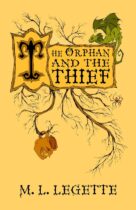
Book Spotlight: The Orphan & the Thief by M.L. LeGette
CHEERS, Beardies!
There are few books that have stumbled into my inbox that make me think, “Damn! That’s a great title!” The Orphan and the Thief was one of these and, upon seeing its marvelously creative and beautiful cover, I knew I had to read its premise. But don’t worry, Beardies—while I love outstanding covers and think they really enhance a book’s appeal (after all, why put a cover on them at all if not to entice?), I do not judge a book by its cover. If anything, I judge a cover by its book. (Some covers really do their book little service, no?)
{—PREMISE—}
WHEN Toad is kicked out of the Ramblers, a gang of thieves and the only family he has known, he tries to prove to them that he truly has what it takes to be a great thief—and what better way to prove it by stealing from the richest and most-feared man in town, Mr. Owl.
Truth be told, however, Toad is as bad a thief as the Ramblers claim and is quickly caught trying to snatch an emerald dragon statue. Normally, Owl would have his brutish sidekick, Ogg, just ‘take care of’ such a miscreant, but with the Hickory Guard watching him closely, Mr. Owl has just the bargain for Toad: get him a specific list of ingredients…or else.
Toad sees this as an easy task; he’ll simply go to the apothecary and steal the ingredients on the list. Easy-peasy. Except the ingredients can’t be found in an apothecary, which explains why he can’t find them. Instead, he finds a friend in orphan and blooming apothecary Melena Snead, who agrees to help him under the false pretenses of payment.
Toad and Melena embark on a fantastic journey of Calendula, full of promise and peril, in search of Owl’s ingredients—only they find much more.
{—GEMS FOR WRITERS—}
1. World Building...
BEFORE you huff and puff that I always choose this Gem, let me defend myself: I try and only choose books whose premise clearly indicates a well-built world. With names like Toad, Owl, and Ogg, I was definitely intrigued.
Cool names does not a world make, I realize, but LeGette delivers more than just those. There are gangs galore (pirates, thieves, AND viking hordes), dragons (but far from the overused imagery), apothecaries and potions, beer mugs of both the enchanting and the intoxicating kind, its own money system, and so much more. The magic in the book, too, is very real and none of it implausible. And the settings are so wonderful, they deserve their own Gem.
2. Setting...
LEGETTE‘S settings remind me a bit of the settings in Ari Berk‘s Undertaken Trilogy: I know they’re not real, but everything about them seems oddly placeable on a map, somewhere that seems quite possible to visit by means other than your imagination.
All of Calendula seems accessible, especially the city of Hickory where the story begins. With its gangs of thieves and orphaned characters, it’s mildly resemblant of London in Dicken‘s Oliver Twist, but only in its familiarity and the mood set by LeGette everything else is purely fresh. Except the smell, of course. I can only imagine the smell; I only want to imagine it, too.
The meadows, caves, and cliffsides draw images of Scotland or Ireland to mind, yet the deserts and arctic landscapes tell of a land far larger and more diverse. LeGette was selling tickets to her world, and I gladly hopped onto the train. I also, figuratively, hopped off before the Blackens. There’s a reason I moved from the North to the South, Beardies, and it wasn’t the hospitality—it was the warmth. The Blackens and its bleak landscape felt all too real for this New Englander, but I will let you experience that for yourself, as I do not want to give away too much.
3. Characterization...
ALL of LeGette‘s characters, from the tiniest to the tallest, literally leap off the page—and, pun aside, especially Toad. From his roguish manners to his strong dialect, Toad is a new favorite character of mine. All the characters have strongly-memorable personalities; LeGette‘s talent at this alone reminded me of JK Rowling‘s unbelievable talent of the same. Even the enchanted beer mug, Joe, has a distinct personality. You almost anticipate what the characters will do and say based on this great characterization—but don’t worry, Beardies, LeGette still leaves you with some surprises!
3. Bait-and-switch...
I won’t divulge too much in this Gem explanation, but LeGette pulled off an ending for which I had secretly hoped but thought improbable.
{—RATING—}
{—CONCLUSION—}
I’M in literary love with M.L. LeGette, Toad, Melena, and the world of Calendula. I recommend this to readers of all ages, especially those who will always be kids at heart. While no second book is yet planned for the dynamic duo as of yet, I am eager to return to LeGette‘s world and join Toad and Melena in all of their future adventures…please?
Keep Calm & Trust the Beard,
beardedscribe
***The Transmigration of Cora Riley (2013), by Ellie Di Julio, is published by and copyright Elle Belle Media.
***Per FTC Regulations: I received a free Advance Reading Copy (ARC) from the author and was not compensated in any way, monetarily or otherwise, for this review.
Book Spotlight: The Transmigration of Cora Riley (A Forgotten Relics Novel, Book One) by Ellie Di Julio
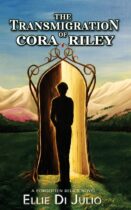
Book Spotlight: The Transmigration of Cora Riley (A Forgotten Relics Novel, Book One) by Ellie Di Julio
Bonjour Beardies,
When Ellie Di Julio approached me about a blog tour to promote her title, The Transmigration of Cora Riley, I was drawn in by the amazing cover. Yeah, yeah… I know you should never judge a book by one, but it captivated me to read the premise, and I was sold. Magic, a soul-searching quest, and a trip to the Underworld; what could be better?
{—PREMISE—}
CORA RILEY has always dreamed of a more extraordinary life; when her mother is diagnosed with cancer, she decides to forego college and the promise of one, settling down and marrying shortly after. After suffering a mental breakdown, leading to a divorce, Cora is forced to move back home with her parents, reminding her even more of her ordinary existence and the possibilities of more.
On an impulse, Cora decides to flee her parents’ house in the middle of the night in search of the life she relinquished. When her truck loses traction, causing it to roll and crash and her death, Cora succumbs to the clutches of the Mistress of the Underworld. The Mistress agrees to give her a second chance at life—but only if she can first complete a quest.
With the help of an atypical angel named Jack, a lost, young soul named Xavier, and the courage and determination she had once abandoned, Cora must travel through a complicated system of portals in search of a secret, thirteenth door (one that may not even exist) in order to complete her quest—and she must do it in only three days.
{—GEMS FOR WRITERS—}
1. World Building...
YOU probably assumed this would appear, but Di Julio truly does give us an incredibly-built world—several, actually. In The Transmigration of Cora Riley, we are introduced to the idea of twelve heavens, concepts based upon ideas held throughout various cultures. While Di Julio does not describe all twelve, she sets the premise for these worlds, all while immersing her characters and readers into a handful. The worlds range from stereotypical to mythological, borrowing elements from each yet expounding upon them with Di Julio‘s own twists and interpretations.
2. Mythology & Folklore Tie-In...
THIS Gem is, in truth, one in the same with the World-Builing Gem, but let’s delve a little deeper. Di Julio takes elements and characters from various mythological and folklore sources and makes them her own. Gods and goddesses from ancient mythos mix with angels, orcs, Faerie, dryads, and sprites, all done beautifully and believably. And a romp through Valhalla never hurt anyone, right?
3. Characterization...
NOT only is Di Julio a great world-builder, but she’s quite the romantic, too. Cora’s relationship with Jack starts off as just a business transaction of sorts, the two seemingly as different from one another as one could imagine. Attraction builds between the two not-so-polar opposites, climaxing in a tastefully-written love scene, and culminating with a bittersweet and unpredictable twist.
{—PEBBLES TO POLISH—}
1. Poor editing...
WHILE the story and the wonderfully-crafted worlds warrant a 5-Star rating, there are editing issues that exist throughout the story. These do not distract from the storytelling, however, and are only noticeable to those with a finely-tuned eye.
{—RATING—}
{—CONCLUSION—}
ALONGSIDE heaven building and mythological tie-ins, Di Julio also weaves supernatural with mundane and sprinkles in a bit of magic, all while telling an awesome tale that left me wanting more. The readers get so caught up in Cora’s story, they don’t know that they’re truly being directed to their own secret portal: a twist ending that is sure to please. I can’t wait to find out what happens next in The Forgotten Relics Series.
Keep Calm & Trust the Beard,
Joshua A. Mercier
***The Transmigration of Cora Riley (2013), by Ellie Di Julio, is published by and copyright Elle Belle Media.
***Per FTC Regulations: I received a free Advance Reading Copy (ARC) from the author and was not compensated in any way, monetarily or otherwise, for this review.
Book Spotlight: The Haunting Season by Michelle Muto
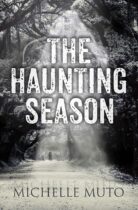
Book Spotlight: The Haunting Season by Michelle Muto
Bonjour Beardies,
Yesterday, as you all know, The Bearded Scribe hosted a stop on a Blog Tour for Michelle Muto‘s title, The Haunting Season. Today I will be digging a little deeper into this Paranormal Fantasy, highlighting specific strengths of the author—strengths that writers should consider emulating in their own stories.
{—PREMISE—}
THAT’S what the ghost of Jess’s grandmother had told her before she stopped seeing it. But after the death of her father, and not being able to see his ghost—or any, for that matter…at least not anymore—Jess decides the opportunity to be part of a paranormal experiment might just bring back her ability. It wouldn’t bring back her father, but at least she’d be able to say goodbye to him, in a way, something she was unable to do before his death.
Against her mother’s pleading, Jess decides to take part in the experiment. She travels to Savannah, Georgia to the notoriously-haunted Siler House—a house that has stood vacant for years—to join three others and Dr. Brandt, the parapsychologist running the experiment. Their presence at the infamous Siler House has resurrected a dark evil that threatens to claim them, and they soon realize some houses are meant to stay empty.
{—BOOK TRAILER—}
{—GEMS FOR WRITERS—}
1. CHARACTERIZATION...
MUTO does an outstanding job describing all the characters—alive and dead—and maintaining the characterization throughout the story. In addition, each character has a distinct personality—concrete and seeming to come to life straight from the page.
2. Supernatural Originality...
WHILE the abilities of the four main characters are not necessarily unique in and of themselves, the combination of the abilities and the author’s research and thought behind the pairings was obvious. Muto does a wonderful job with making the abilities believable, too, as they all have limitations—both physical and mental.
3. Characterization...
ALTHOUGH the physicality of Siler House was inspired from a real place (The Sorrel-Weed House), the historical plot behind the haunting of Siler House is completely fictional and of Muto‘s own creation. Fictional though it may be, there’s something spooky behind the haunted tragedy of Siler House; its darkness and believability leave a chill in the reader long after the last page is turned.
{—RATING—}
{—CONCLUSION—}
THIS title was well-written, despite some needed editing for common (but minor) grammar mistakes. The sexually explicit scene ruined the flow for me; and although the author kept building toward it, I think the story would have benefited more from this act being merely alluded to and not actually described in graphic detail. Other than that, the story structure was well-organized and masterfully crafted. The world in which it is set—reality-inspired, yet so fantastically eerie—was impeccably built. The Siler House and its grounds came to life, the characters and their many personality quirks shined, and the story was terrifyingly gripping. I would definitely recommend this to all my readers (at least the ones who are 17 and up).
Until next time—Happy Scribing!
Joshua A. Mercier
***The Haunting Season (2012), by Michelle Muto, is published by and copyright Autumn Hill Press.
Book Spotlight: The Apprenticeship of Victor Frankenstein Series by Kenneth Oppel
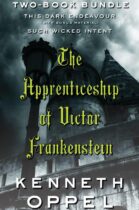
Book Spotlight: The Apprenticeship of Victor Frankenstein Series by Kenneth Oppel
GOOD EVENING, Beardies,
Call me indecisive if you will, but making “Best of the Best” lists is my own personal brand of librarian kryptonite. I just can’t decide! Usually, the best book I’ve read this year is the one I’m reading right now. So, instead of making my own list, most of the time I read the books that are on everyone else’s lists.
This Dark Endeavor, the first book of Kenneth Oppel’s The Apprenticeship of Victor Frankenstein Series, was on a 2011 list from one of my librarian idols, Lynn Rutan. Along with colleague Cindy Dobrez, Lynn writes a blog called Bookends that I follow religiously. She called This Dark Endeavor “a steampunky Frankenstein retelling,” and from that description alone, I was hooked. Everything Lynn promised, the book delivered, and when the second book came out in August, the series skyrocketed to the top of my “Books to Spotlight” pile.
{—PREMISE—}
SIXTEEN-YEAR-OLD Victor Frankenstein lives the typical life of a young gentleman of privilege in eighteenth-century Geneva. Victor idolizes his twin brother, Konrad, and the two are virtually inseparable. One day, exploring in Chateau Frankenstein with their cousin Elizabeth and best friend, Henry Clerval, they discover a secret room filled with arcane tomes—the Dark Library that once belonged to their ancestor Wilhelm Frankenstein. Victor is intrigued by the contents of the Dark Library, but his father makes him promise never to return there. Then, Konrad becomes gravely ill, and even the best physicians in Europe seem unable to help him. Heartsick and desperate, Victor returns to the Dark Library in search of a cure, embarking on a quest to brew the Elixir of Life and save his beloved brother from certain death.
{—GEMS FOR WRITERS—}
1. CLASSIC INSPIRATION...
THE retelling of archetypal and classic stories is currently one of the most popular trends in young adult publishing. While retelling is one of my favorite literary techniques, I always approach these books with some wariness because so much can go so very wrong. Kenneth Oppel does everything right in his reimagining of the classic story of Frankenstein. All the hallmarks and the spirit of the original story are present, but the retelling breathes new life into the classic. The portrayal of Frankenstein as a teenager makes the old story accessible to a new generation, and hopefully, more readers will discover the original through the retelling.
2. FOOD FOR THOUGHT...
ONE of the things I love about retellings is how they make me think about familiar material in new ways. Although I am quite familiar with the story of Frankenstein, this is the first time that I’ve really connected with the protagonist. When it comes to saving a loved one, how far is too far? Is it ever okay for humans to play God? These are just a few of the questions with which the teenage Frankenstein grapples, and somehow, by putting them into the mind of a teenager, Kenneth Oppel made them resonate with me even more deeply. There are, of course, no easy answers for either Frankenstein or the reader, so the book continues to echo long after the last page.
3. CHARACTERIZATION...
AS stated, though this was far from my first exposure to the story of Frankenstein, it was the first time I have been truly able to connect with the protagonist. This connection is, in part, due to Oppel’s outstanding characterization, which humanizes the protagonist. The teenage Victor Frankenstein has a brash, larger-than-life personality. His emotions run deep, particularly his love of his twin brother, and though he sometimes makes the wrong decisions, he always does so for the right reasons. Based on past experience, I never expected to love this character, but I found myself viewing him as a much-loved but highly-exasperating younger sibling, wanting to strangle him one moment and loving him to pieces the next.
{—RATING—}
{—CONCLUSION—}
IN The Apprenticeship of Victor Frankenstein Series, Kenneth Oppel tackles an old subject in a new way, portraying a familiar protagonist in a new light and leaving the reader with many lasting questions. This portrayal makes a classic accessible to a whole new generation. The first two books of this planned series are a treat for speculative readers and I can’t wait for the next installment.
Happy Reading and Happy Scribing!

ELIZABETH J. NORTON
***This Dark Endeavor (2011) and Such Wicked Intent (2012) by Kenneth Oppel are published by and copyright Simon and Schuster Books for Young Readers.





